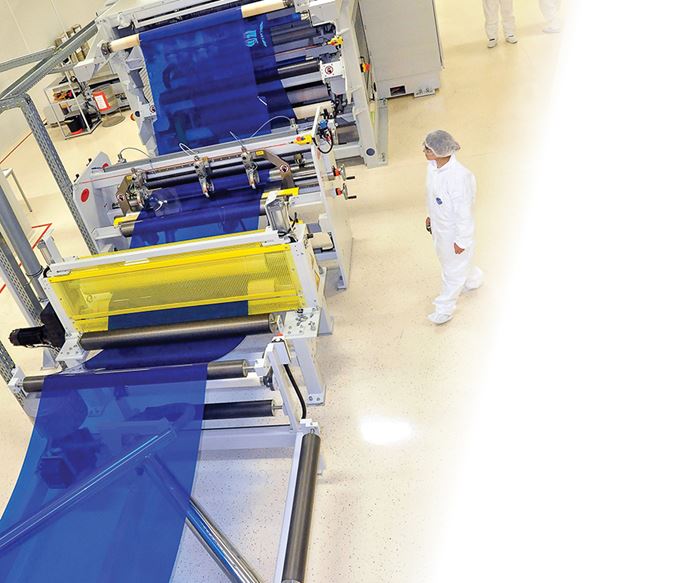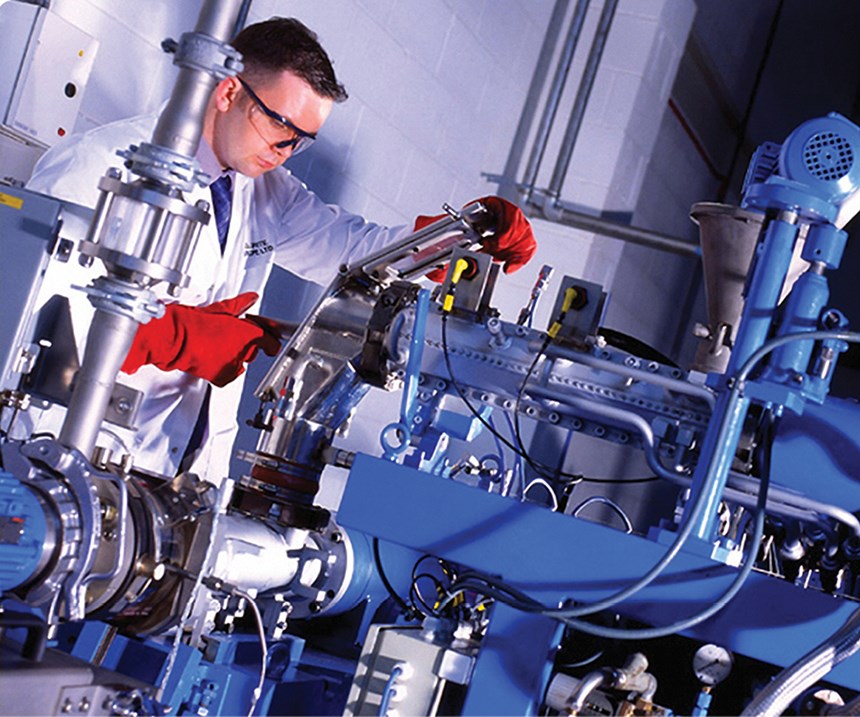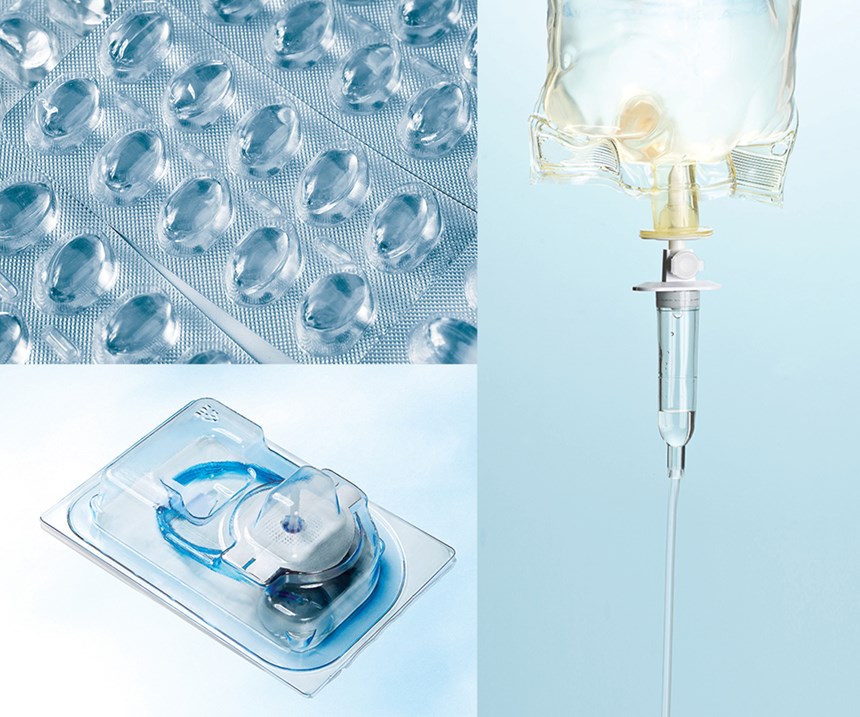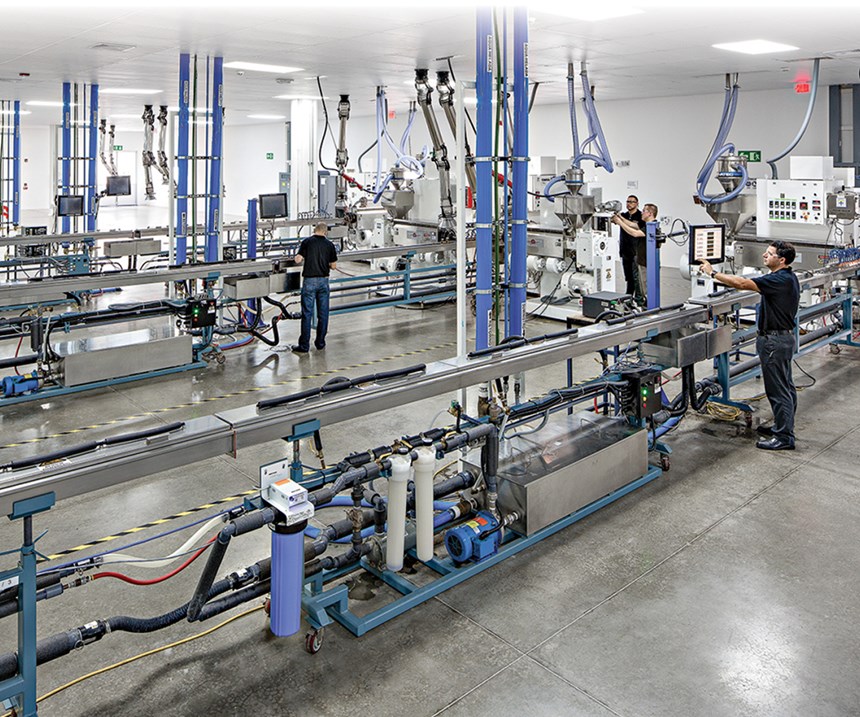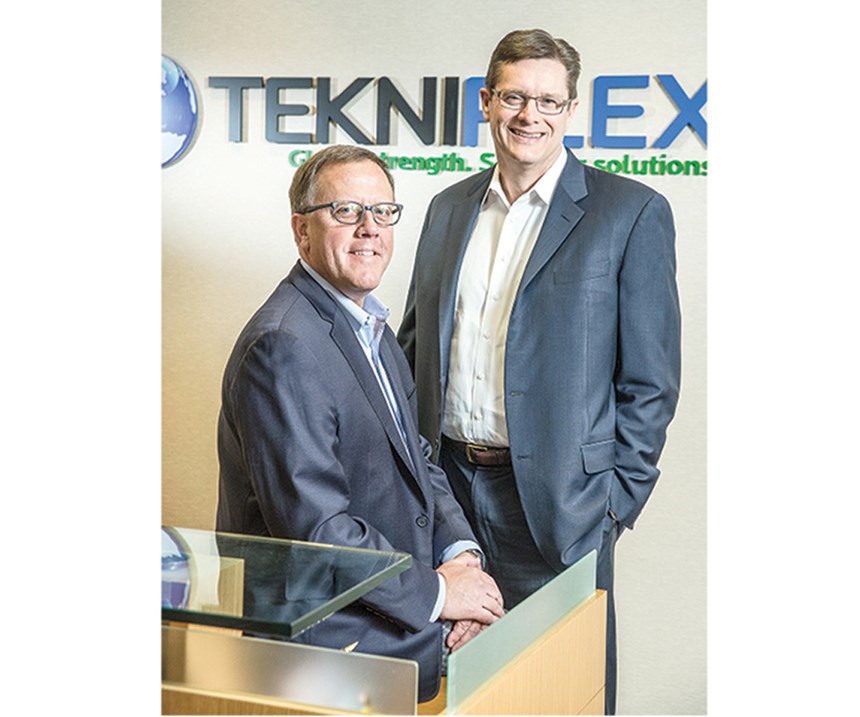Extrusion Powerhouse Does It All
Tekni-Plex has evolved into a technically diverse global supplier of a wide range of extrusions for a host of markets, many of which are regulated.
Ask management of Tekni-Plex to explain their business, and be prepared for an answer that covers a wide range of plastics (and rubber) processes that serve high-end—and usually regulated—customers in medical, pharmaceutical, personal-care, household/industrial chemicals, and food and beverage markets. This global processor’s business was founded in Brooklyn, N.Y., in 1967 and expanded by building a new plant in Somerville, N.J., in 1970. Some 50 years and 140 patents later, Tekni-Plex is headquartered in Wayne, Pa. as a global processing enterprise with 2600 employees, 30 manufacturing plants, 13 of them ISO certified, with eight ISO Class 8 clean- rooms and $672 million in annual sales. Sales were up last year by 5% from 2015.
Throughout its history, the firm has grown primarily through acquisition, notes Paul Young, CEO. It’s currently owned by New York private-equity firm American Securities, whose holdings also include Advanced Drainage Systems, the world’s leading producer of corrugated HDPE pipe. American Securities acquired Tekni-Plex in 2013 from Oaktree Capital, another private-equity firm.
Tekni-Plex is no stranger to leading positions, says Young, pointing out that all of its business units are number one or two in their respective fields. These include:
• Colorite: With two plants in the U.S. and one each in Europe and China, Colorite has been in business for more than 50 years, furnishing medical- grade compounds. Its formulations are based primarily on PVC, but of late it has been doing more in TPE. Colorite’s compounds are used by injection and blow molders and extruders to produce such products as hemodialysis tubing, blood bags, chemotherapy drug-delivery bags, endotracheal tubes, and oxygen masks. Its PVC compounds range in Shore A hardness from 40 to 98, and from 60 to 80 Shore D. They can be formulated phthalate-free with DINCH, DEHT, and other plasticizers. Its high-performance PVC compounds consist of families that are self-frosting, radiopaque, and ultra-high molecular weight. Its Cellene line of TPE compounds is furnished in Shore A hardnesses from 20 to 95 and Shore D from 35 to 60.
All of Colorite’s four plants are ISO:2008 certified. Production is supported by R&D Tech Centers in Ridgefield, N.J., and Belfast, Northern Ireland, which have identical lab-scale sample equipment.
• Natvar: With two U.S. plants and three abroad, Natvar makes single- and multi-layer medical tubing from PVC, PE, TPE, TPU, and other materials. It recently launched the LipoPath shatter-resistant, hydrophilic, coextruded copolyester capillary tube and a PE/TPU insulin-delivery tube. LipoPath tubes are a clear alternative to glass and plastic hematocrit tubes that require plasma and heparin coatings. The tubing line features a coextruded outer layer and a proprietary inner layer. At its plant in Costa Rica, Natvar recently started up a new micro-bore extrusion line producing catheters. These are high-precision tubes with ID tolerances of ± 0.005 in. Natvar also produces cardiovascular tubes, bubble tubing, and multi-lumen tubing. All five facilities have ISO-certified clean rooms. Natvar sources roughly 90% of its compounds from Colorite.
• Tekni-Films: With manufacturing plants in North America and Europe and a contract-manufacturing facility in South America, Tekni-Films produces monolayer, coextruded, laminated, and coated barrier structures that are used for thermoformable blister packaging, IV bags, and medical trays. Tekni-Films recently installed a copolyester sheet line at its ISO-certified plant in Holland, Ohio. The line produces proprietary sheet as an alternative to PETG for thermoformed medical trays and other applications, says Stephen Penn, Tekni-Films’ global general manager. The line produces sheet thicknesses from 5 to 60 mils.
• Tri-Seal: This business is a leading global manufacturer of closure liners and seals for glass, metal, and plastic containers. Tri- Seal has eight plants around the world, including four in the U.S. It produces seals for food, beverage, pharmaceutical, cosmetic, household/ industrial, and agri-chemical products. Among the technologies it uses are PE foam sheet extrusion, and laminated paper, plastic, and foil structures for induction heat-seal liners.
• Action Technology: A global leader in aerosol and pump-dispensing components, Action’s product line includes aerosol and dip tubing; nozzle-extension tubing; swab-stick shafts; and food spreader, ice-cream, frozen-dessert, and lollipop sticks.
• Dolco Packaging: The leading U.S. manufacturer of PS foam egg cartons, Dolco also makes mushroom tills, apple and pear trays, and industrial and custom packaging. Lately Dolco has been doing more in PET for egg cartons and mushroom tills. Plans are in the works for a second PET sheet line in Holland for the Dolco business. Dolco has five U.S. plants where it operates extrusion and high-speed thermoforming lines along with silkscreen printers.
THE BRAIN TRUST
Most of these businesses rely on PVC to some degree, and Young is bullish on the future of the material for his businesses, environ- mental challenges notwithstanding. “Our PVC business is growing,” he says. “That said, we are constantly exploring new technologies and materials across all of our businesses. We have $30 million earmarked for capital expenditures in this fiscal year alone. In cases where customers are looking for new solutions, we’ll work in collaboration to create them.”
A key to this strategy can be found in Holland, Ohio. That’s where Tekni-Plex built its Global Technology Center in 2011. “Our overall business structure looks complicated, but one of the things that ties it all together is polymer technology. At the tech center, 20 engineers and technicians in polymer science help form the technology backbone for all business units. They participate in meetings with customers and suppliers, manage the company’s intellectual property, and ensure Tekni-Plex’s global regulatory compliance—which is crucial, since more than half of its products go into markets that are regulated by one government agency or another.
“We handle a lot of different projects in Holland,” says Young. “We’ll have customers come to us with an idea for a package that must perform in a certain way or protect a drug or medicine to a particular degree, and we’ll figure out how to do it. Sometimes the project will be driven by one of our six businesses. On one occasion, for example, we were not getting the performance we wanted in a foamed PS produce tray, so we tweaked the formulation by adding some specialized PS to solve the problem.”
Young, who started in plastics in the 1980s with Owens-Illinois in Toledo, Ohio, was appointed CEO of Tekni-Plex in 2008. At the time, he worked with Oaktree Capital company to purchase Tekni-Plex. His first order of business was to reorganize the leadership team with the main objective of “adding talent.” Several new leaders were promoted from within the ranks, and others were brought in from Young’s network. Expansions of existing plants, establishment of new plants abroad, and acquisitions have continued under his leadership.
“Our vision is to be a trusted global partner for our customers,” he says. “We will be a leader in creating and commercializing new materials, technologies, and products utilizing a network of highly efficient facilities around the world. We will be an employer of choice for people who value safe, collaborative, challenging, and rewarding work. And we will continue to focus on innovation. Today, it means providing world-class materials science, advanced development, and superior engineering and processing capabilities. This expertise enables us to deliver products that deliver a broad range of performance attributes.
“Continuous investment in R&D and a determined focus on innovation has led to smarter, safer packaging, dispensing, and tubing products and technologies. We guide our customers through material selection, and as their needs evolve, we can create novel solutions to meet them.”
Related Content
PTI Seals Deal to Rep Italian Slitter Manufacturer Helios
PTi to provide slitters and related components and services to sheet processors in the U.S. and Canada under exclusive agreement.
Read MoreExtrusion Excellence: This Year's Top Stories
Revisit the year’s most popular articles on extrusion technology and processes, showcasing innovations, best practices, and the trends that captured the plastics processing community’s attention.
Read MoreSheet Extrusion, Thermoforming Tips for PLA/aPHA Blends
Biopolymers like PLA and PHA are able to meet sustainability goals while also delivering the performance attributes needed in rigid food packaging. Here’s what testing has shown.
Read MoreMaking Gains in the Drain Game
AWD blends extrusion and thermoforming technologies with plenty of home-brewed equipment and processes to keep water away from where it isn’t supposed to be.
Read MoreRead Next
Beyond Prototypes: 8 Ways the Plastics Industry Is Using 3D Printing
Plastics processors are finding applications for 3D printing around the plant and across the supply chain. Here are 8 examples to look for at NPE2024.
Read MoreLead the Conversation, Change the Conversation
Coverage of single-use plastics can be both misleading and demoralizing. Here are 10 tips for changing the perception of the plastics industry at your company and in your community.
Read MoreMaking the Circular Economy a Reality
Driven by brand owner demands and new worldwide legislation, the entire supply chain is working toward the shift to circularity, with some evidence the circular economy has already begun.
Read More

